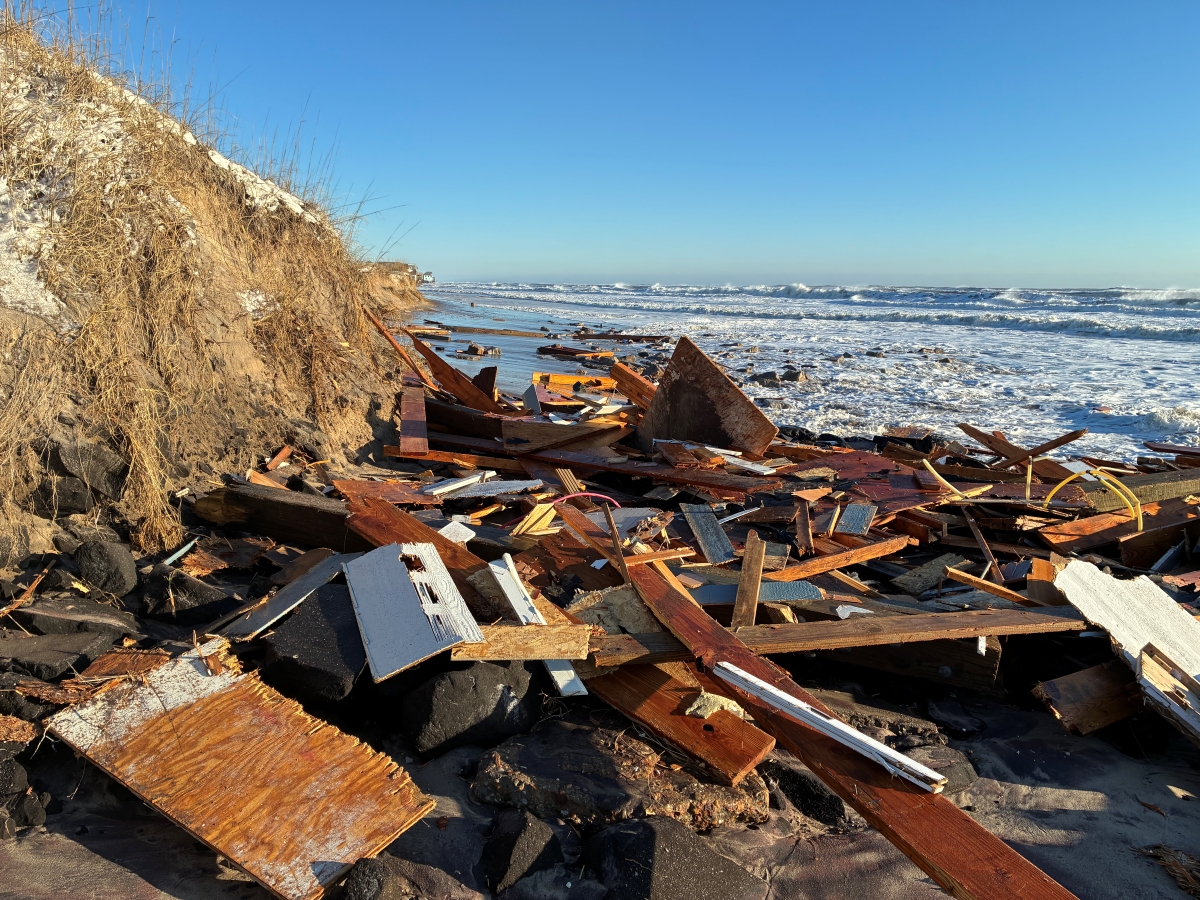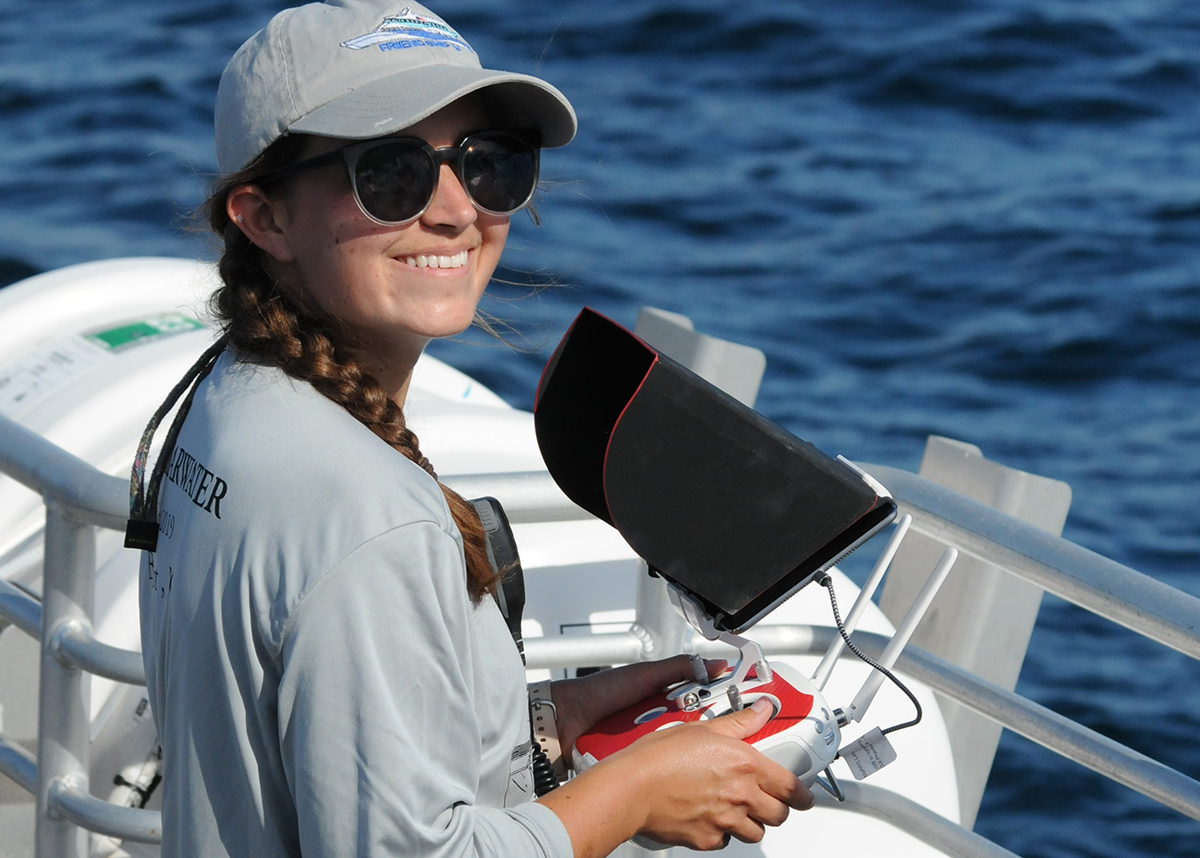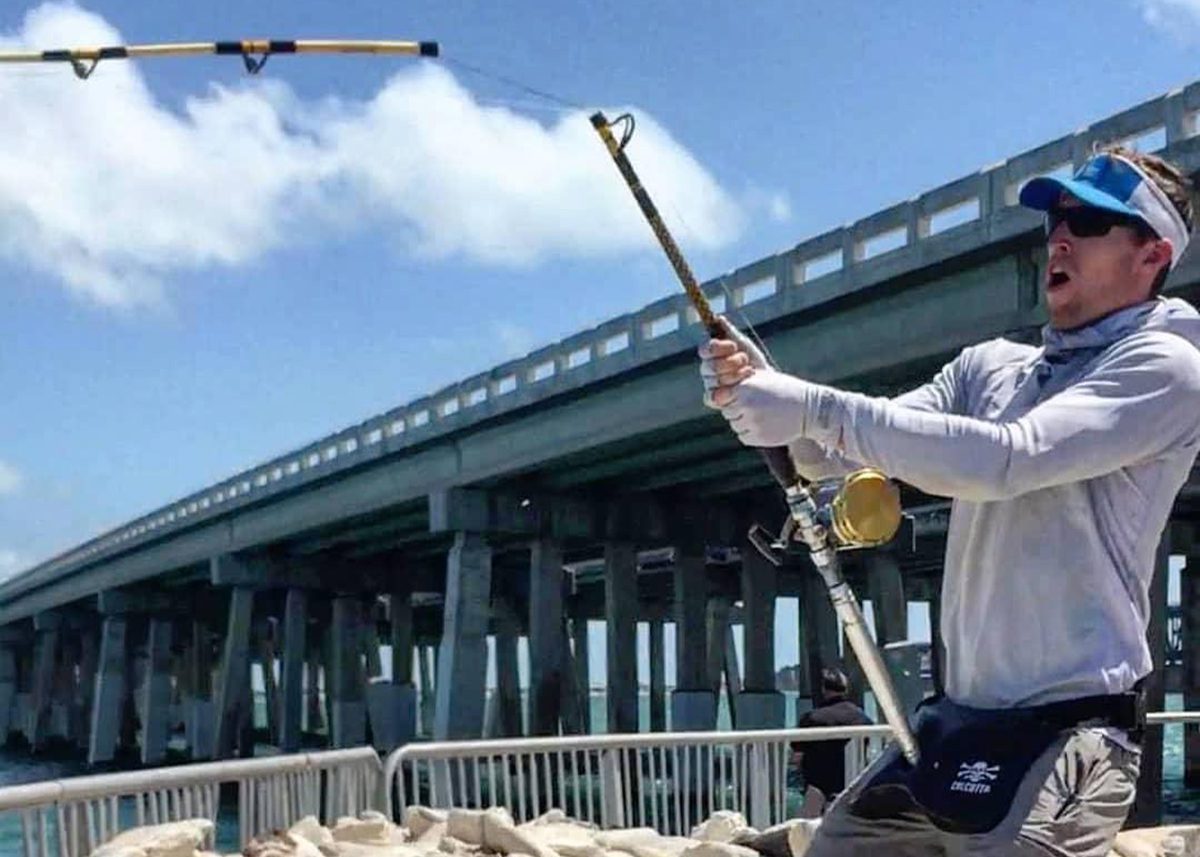
We’ve talked a lot about how to catch certain fish and what it takes to be a good angler. There’s one thing that makes a big difference to everybody. Others may not even notice or pay attention to these things. The whole point is that paying attention to them makes the whole difference.
Good anglers are concerned with details.
Supporter Spotlight
I guarantee you that the person you see who just seems to randomly toss a bait out but catches fish all the time is paying attention to something you or I may not notice. The little details count and add up to big successes later on. If you don’t see these things chances are you’re not going catch fish in a lot of situations that other people will.
Of course, careful gear inspection should go without saying, but years ago, skilled angler Owen Mulvey learned that overlooked details such as an unnoticed ding or a scratch can have explosive results. Often when a rod blows apart like the one shown above, it’s from pulling too hard with too much drag, or pulling the rod too far back. But even a gentle bump against a rock that can happen while rigging the rod could inflict an easy-to-miss injury with similar effects. Graphite can get very brittle when it gets a chip — I’m talking little stuff.
But beyond gear, the real nuances to notice are in nature.
Let’s start out with an easy one, there’s a fairly popular place to catch speckled trout in September and October not too far from my house. If you go there and you cast to one side, you will catch nothing but lizardfish. You cast on the other side, you’ll catch speckled trout.
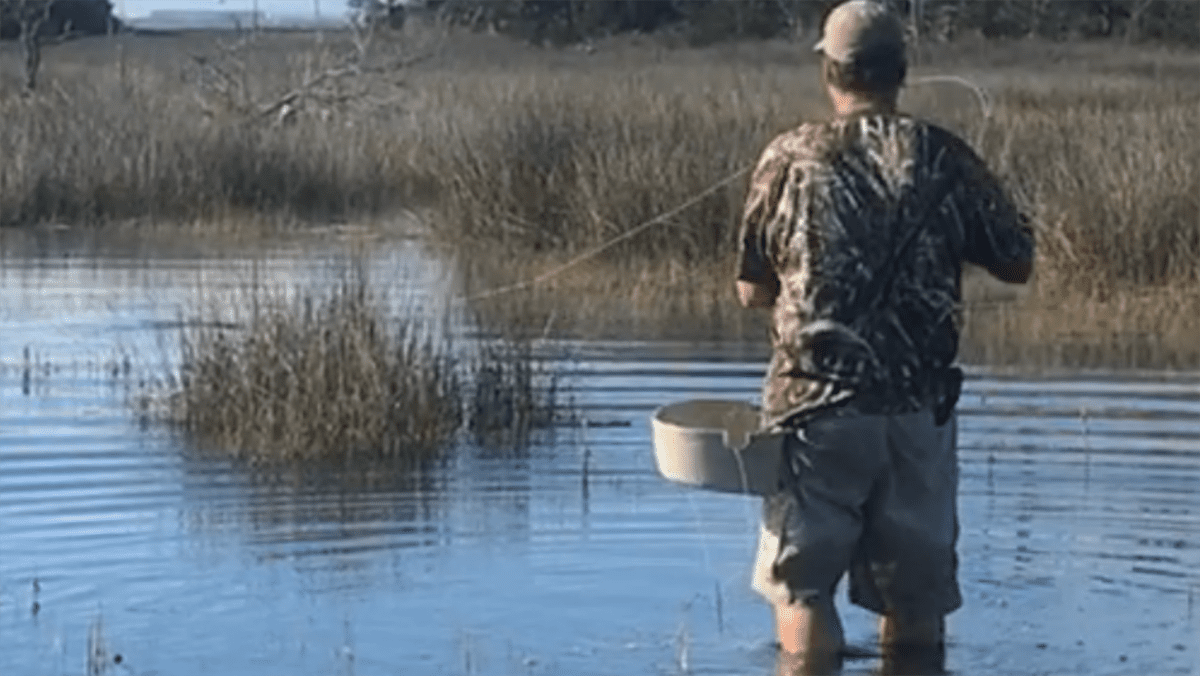
At first there is no difference between the two sides, in fact if you didn’t pay attention, you might never notice. But on the good side is the outside bend of the creek where the water flows a little deeper, faster, and has an undercut back. On the bad side, there’s not much current and all that’s there are the aforementioned lizardfish. If you and I go fishing there, if you don’t pay attention, I’ll catch every fish and you won’t get anything, and that’s the way it goes with detail-oriented anglers.
Supporter Spotlight
Let’s go to a very specific night of speckled trout fishing with a fly rod. We were casting to big trout under the lights. For some reason we just couldn’t get a bite. I finally noticed some very small minnows — I mean tiny. I changed to a fly that I had tied for the false albacore run in the early season, when the small bay anchovies are in. That did the trick. For the rest of the evening we were catching very large speckled trout and a couple of beautiful citation fish.
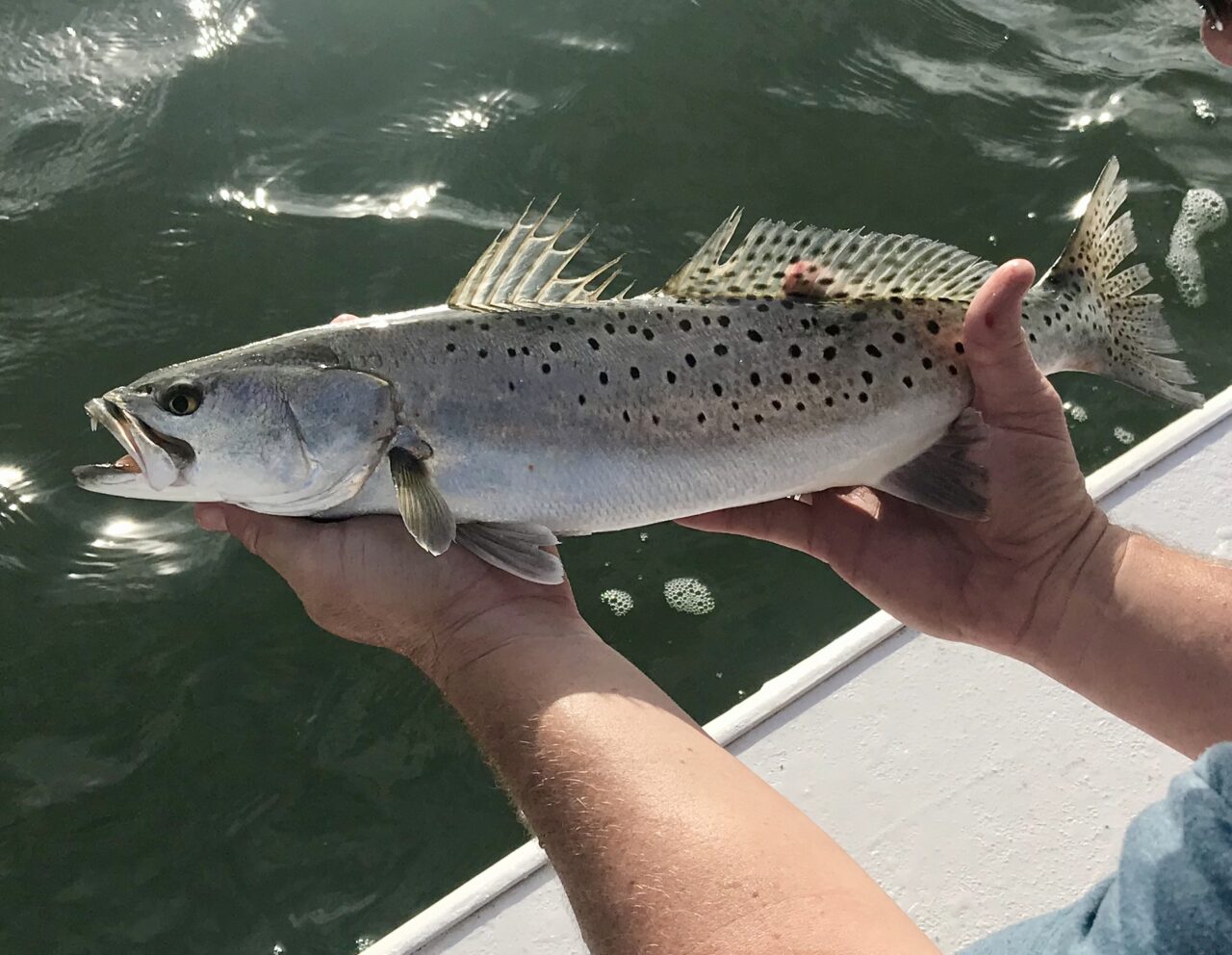
If I had not been paying attention to the small details, we would’ve gone home without anything. Instead, we had a very memorable night that we still talk about today.
One of the things that I was well known for was fishing for redfish in very shallow water with a flyrod. It involves details on top of details. First, we had to be able to see the fish. If you couldn’t see it at all, you were not even in the game.
Once you locate a fish, usually by its waving tail or some more subtle indication, such as a glimmer of a shiny back or something else that, if you don’t know what you’re looking at, you won’t see it, then you need to know how to approach the fish within casting distance without spooking it.
Once you determine how far the fish is from you, then you have to notice the direction it is facing.
If it sounds like a lot of things can go wrong, it can. If you haven’t practiced your casting, there’s a lot of chances to mess it up. Not leading your target appropriately will lead to a blown-out fish – spooked and gone in a watery cloud of silt.
The very grass that draws the fish in, becomes an obstruction because it becomes very difficult to cast sometimes and you have to wait for the fish to move into an open area. But these very things that make it difficult are the exact reasons that I enjoyed it so much. Noting the details and working out the problems will allow you to catch a fish that other people may not even know of — that to me is the true essence of fishing.
On the most basic level, paying attention to small details will help you become a better angler. You should always check your tackle before heading out. Know how your line is, reels are, if you rod is about to break or something else stupid. What are you going to do if you hook a big fish? Are you going to be prepared? These are the details. Because if you’re not ready beforehand when the time comes you will not have success. All the great anglers whom I talk to all say the same thing: Have a plan, know the details, know how the fish are going to react. All these things are what make good anglers into great anglers.
I realize that I have talked about this before and in many different ways, but I really believe it. A big-time football coach doesn’t go into game without knowing every detail of the game plan from each and every one of his assistant coaches. A big-shot businessman always makes sure everybody is on the same page before progressing. The president of the United States does not assign people to cabinet positions off the top of his head without knowing what every person is going to be doing. You just don’t do that. That’s dumb.
There’s a reason that the term “detail-oriented” is often used to describe the very best of the best people we admire. You should incorporate that into your fishing as well.




